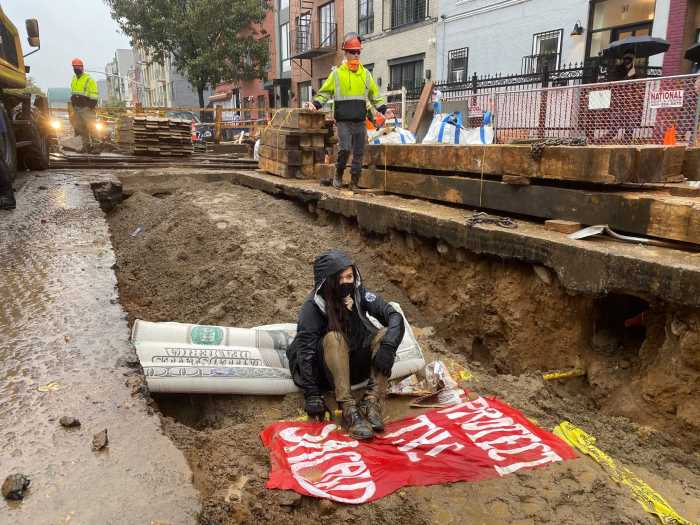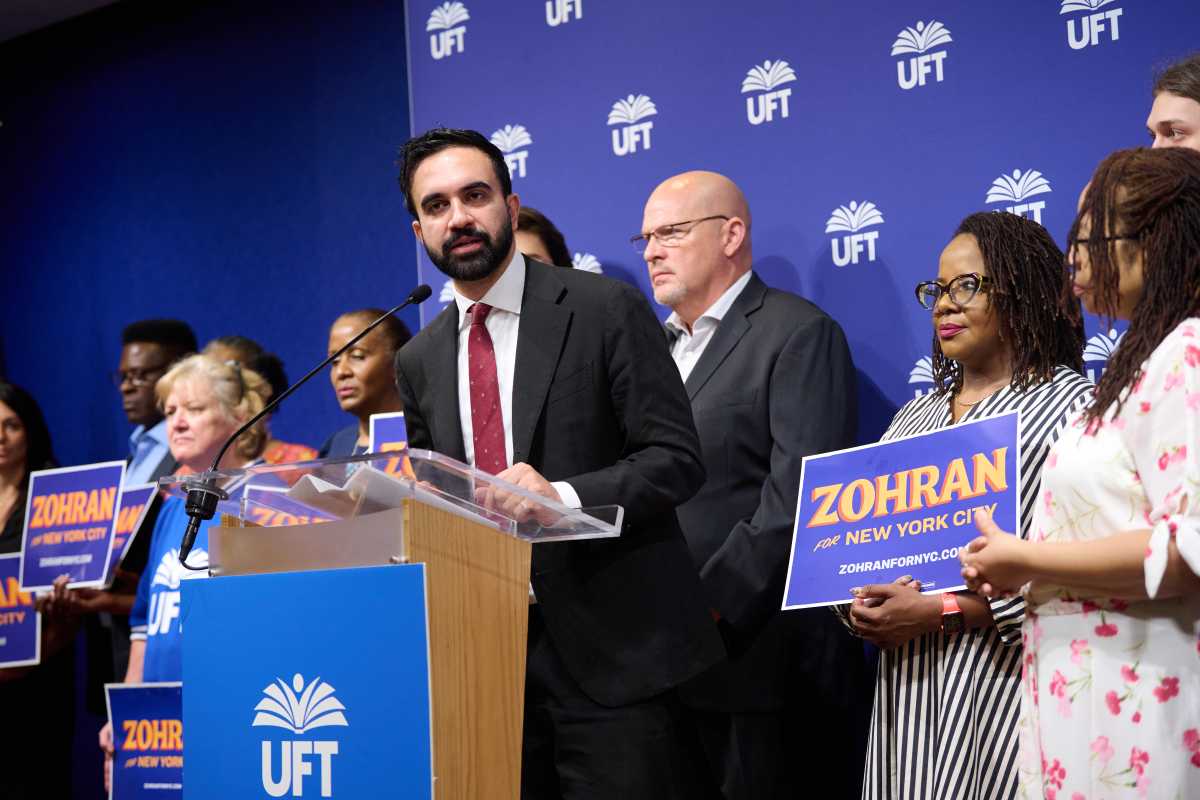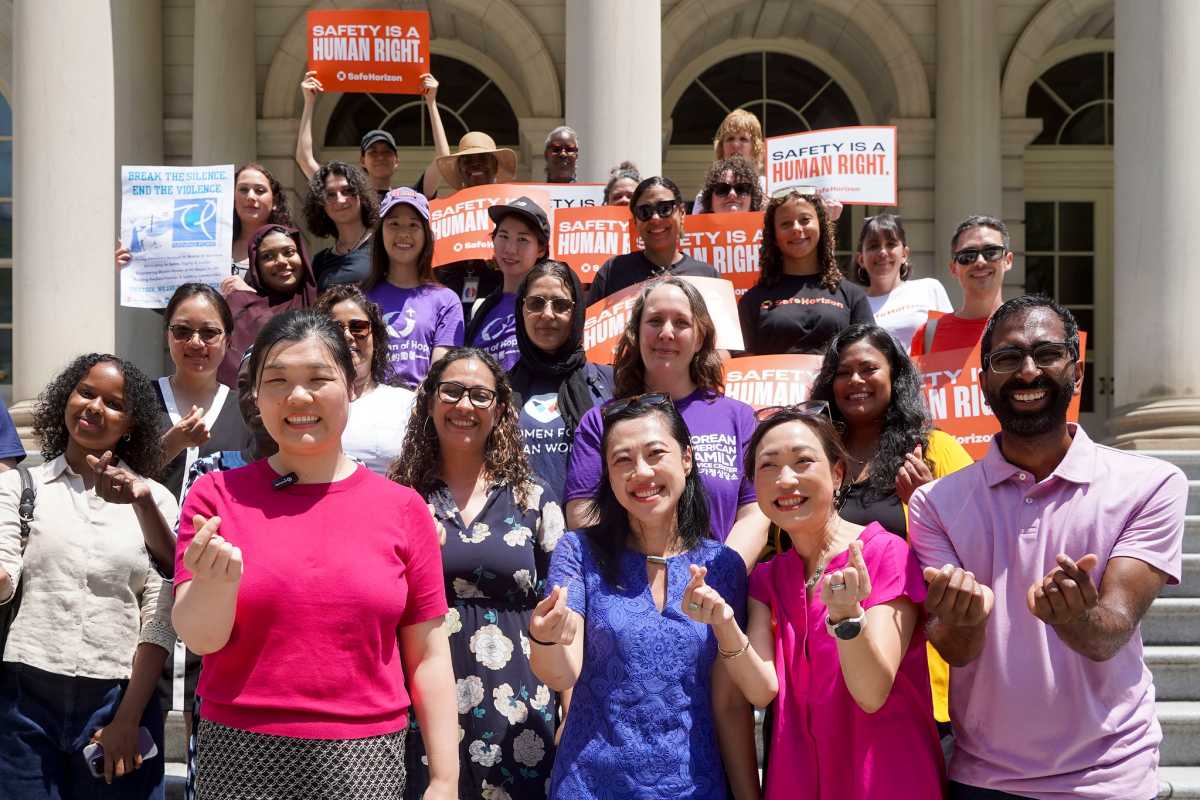As a critical decision regarding the expansion of a fracked gas pipeline that would increase the amount of fossil fuels pumped into New York City looms, activists descended on Albany to urge Governor Kathy Hochul to stop the project and dedicate state resources to reducing greenhouse gas emissions.
New Yorkers gathered in the Capitol Building on April 4, a week before the state’s Department of Environmental Conservation was expected to release its decision to approve or deny air permits for the Iroquois Pipeline expansion, and demanded that Hochul and the DEC deny the application. A decision on the permits was initially expected on April 11 — but it seemed deliberations could still be going on, and, as of April 13, DEC had not announced its choice.
“The fossil fuel industry is pushing climate-wrecking bills and the dirty Iroquois pipeline expansion in a last-ditch attempt to lock New Yorkers into their toxic product,” said Food & Water Watch New York Organizer Laura Shindell. “Governor Hochul must not fall for the industry’s desperate ploy. She must direct her DEC to deny air permits for Iroquois Pipeline Company’s gas expansion proposal.”
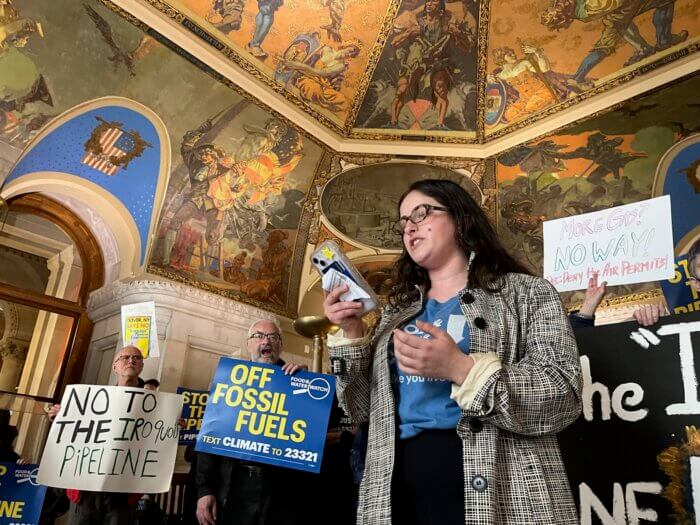
The Iroquois Gas Transmission System hopes increase the capacity of the existing pipeline — which currently stretches from Canada through New York and Connecticut and ends in Long Island and New York City — by installing a number of compressor stations along it. Iroquois says the new stations are needed to provide enough gas for customers in the northeast — and that the project would benefit New York City and its residents by reducing the need for gas moratoriums.
If approved, the project would increase the amount of fracked gas traveling through the pipeline by 125 million cubic feet per day, the equivalent to the capacity of 2.5 billion house gas stoves. But advocates say the project is unnecessary and potentially harmful, especially as New York waits for the state budget to be finalized.
The state administration is deciding on the budget that is expected to include a landmark ban on fossil fuels in the construction of new buildings statewide, following the lead of New York City, which passed a bill banning new gas hookups in 2021.
“It is, or should be, the responsibility of elected officials and state agencies to protect their constituents’ health and safety,” said Cari Gardner, a member of New York Progressive Action Network who lives near the proposed Athens Compressor Station. “If the Iroquois enhancement permit is not denied, then they are not doing their job. We need to think about this when we vote.”
The rally was organized as Brooklyn state Senator Kevin Parker, and Assemblymember Didi Barrett pushed for new legislation to change New York’s standard for calculating methane emissions, which critics say would benefit the fossil fuel industry and prolong the state’s reliance on fracked gas projects. That same day, Hochul came out in support of the proposal — but quickly backed off, and said her administration will continue to pursue other initiatives that would make the transition to a green economy affordable for New Yorkers.
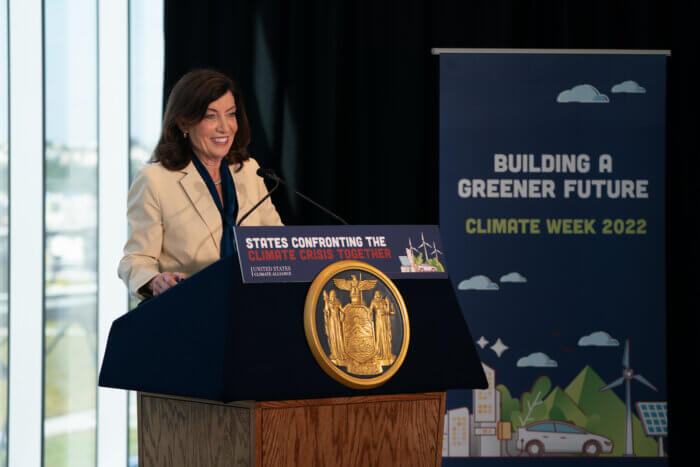
“We’re focusing on the environment, making sure that we have affordability embedded into our nation-leading climate change initiatives, which I’m very proud of,” said Hochul to reporters on Wednesday.
With that in mind, activists pointed to another recent climate win — last month, the state’s Public Service Commission declared National Grid’s proposed expansion of the Greenpoint Energy Center was unnecessary, prompting the company to withdraw its application for air permits.
Both the Energy Center and the Iroquois Pipeline are part of National Grid’s backup plan to make up for the axed Williams Pipeline, and activists say if the Greenpoint project is unnecessary, that should mean that the Iroquois expansion is unnecessary too. Both projects would increase gas pumped into New York City despite the gas ban in place and existing local laws that would require large building owners and developers to construct with high energy efficiency.
Last month, advocates protested outside an event Hochul attended in Brooklyn, demanding that she and Mayor Eric Adams stop the Iroquois project.
“You can’t convince me that massive of a move is not going to make the pipeline leak gas into the atmosphere,” Kensington resident John Pope told Brooklyn Paper at the time. “For effective climate action, we have to do a lot of things at the same time. We’ve got a lot of pieces of the puzzle and we need to continue to put them together.
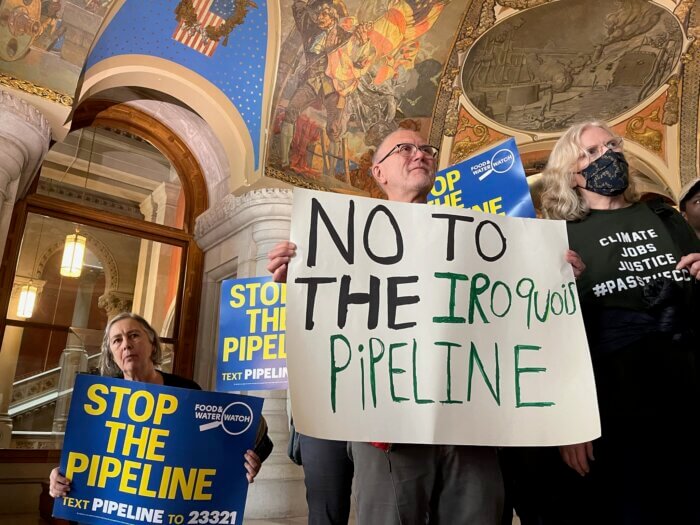
A Food & Water Watch analysis found that compressor stations like those that would be expanded under the Iroquois EXC proposal emit ozone and smog-forming particulate matter linked to asthma, chronic obstructive pulmonary disease, low birthweight in babies, and certain cancers. Almost every speaker at a recent public hearing on the Iroquois expansion were opposed, and 3,300 comments have been submitted in opposition to the project.
Kim Fraczek, Director of the Sane Energy Project, which spearheaded the movement against the Greenpoint Energy Center expansion, the North Brooklyn Pipeline, and the Iroquois Pipeline, encouraged Hochul and DEC Commissioner Basil Seggos to retire the pipeline “for good.”
“Right now, it’s local working families who are losing sleep, time, and money organizing and lobbying for their health, safety, and futures while the Governor entertains the fossil fuel industry’s priorities,” Fraczek said. “It is a shameful outrage that she might negotiate away climate justice with National Grid, a UK-based corporation behind Senator Parker’s sick bill, and main actor behind the ‘Iroquois’ pipeline.”






